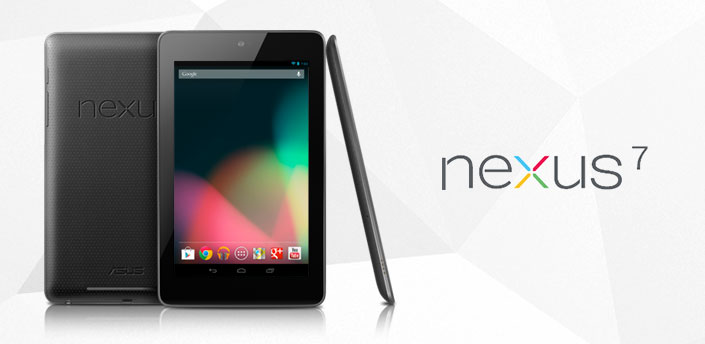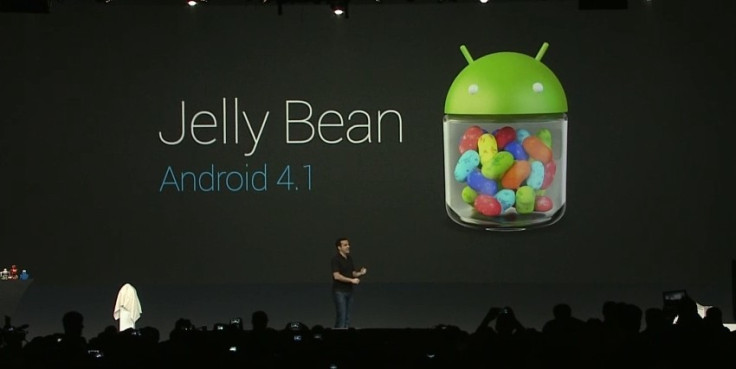Android Jelly Bean: Which phones and tablets will get it and when?
Will the Galaxy S3 get Jelly Bean?
Google has just announced the latest version of Android, but will the Galaxy S3, HTC One X or any of the other hundres of Android phones and tablets get the update, and how long will you have to wait? We investigate.

Following the launch of any version of Android, questions like "When will my phone get the update?" are always asked.
If you own an expensive Android-based smartphone like the Galaxy S3, HTC One X or Galaxy Nexus, then you will want to make sure your device is at the top of the list for an upgrade.
Of course the issue isn't as straight forward as Google pressing a button and sending out the Android Jelly Bean update to all phones. Manufacturers and mobile phone networks need to first test the new software and add their own tweaks before pushing it out to their customers.
This can cause huge delays of sometimes up to 12 months, leaving customers frustrated and looking on at iPhone owners enviously as they automatically get the latest iOS update immediately after it is made available.
Indeed most manufacturers are still concentrating on rolling out the previous version of Android, codenamed Ice Cream Sandwich, which was launched this time last year.
The problem lies in the huge variation in the hardware standards of phones which use Android. Ranging from powerful quad-core phones with Full HD screens to low-end budget smartphones with single core processors and low resolutions screens, it makes it tough to roll out a single version of Android for all smartphones and tablets.
While the issue of fragmentation of Android is seen as a good and bad thing by developers, for customers it leaves them in limbo, waiting for Google, manufacturers and mobile phone networks to tell them if they will be getting the new update.
Here we have rounded-up the details of which smartphones and tablets will get the update, which will 'probably' get the update, and which are unlikely to ever run Android Jelly Bean:
Android Jelly Bean: First on Nexus 7, Galaxy Nexus, Nexus S and Motorola Xoom

The first device to ship with Android 4.1 will be the newly-announced Nexus 7 tablet which was launched alongside Jelly Bean at Google I/O 2012.
The tablet is available to pre-order in the Google Play store now and will be shipping in mid-July costing £159 for the 8GB version and £199 for the 16GB version.
Google also announced two smartphones and one tablet which will also get the update in mid-July, unsurprisingly naming the reference models for the last three versions of Android.
The Nexus S and Galaxy Nexus smartphones will both get the Jelly Bean treatment while the Motorola Xoom, which was unofficially the reference model for Android 3.0, will also get upgraded.
Will the Galaxy S3 and HTC One X get Android 4.1 (Jelly Bean)?
At the moment, the Samsung Galaxy S3 and the HTC One X are the flagship smartphones for the Android platform and will be among the phones which will be top of the list for getting the upgrade.
Google announced the Android Platform Development Kit (PDK) in a bid to speed up the update cycle for new versions of the software.
The PDK is a collection of tools to help manufacturers port Android to their devices. Google will release the PDK to developers a few months before it launches each new version of Android meaning they should have smartphones and tablets ready to go, when Google launches the new version of Android.
While we are sure the Galaxy S3 will get the update, Samsung is yet to confirm it will be making its way to its best-selling handset: In a statement to Pocket-lint, the South Korean firm said:
"In the case that a new version of an Android operating system is publicly announced and released, Samsung will review the possibility of implementation to existing Samsung products with the Android operating system [update]. Such a review will be based on various factors including, the overall effect of the update to Samsung products, the system requirements, the structural limitations, and the level of cooperation from the component suppliers and the software licensors. If Samsung decides to make the update available to the users it will be released upon successful completion of development."
While this leaves Galaxy S3 owners in limbo, it also indicates that the rest of Samsung's smartphone and tablet line-up, including the Galaxy S2, Galaxy Tab 10.1 and Galaxy Note, are all in the same boat, which is not great news for customers.
Turning to HTC, the Taiwenese company said it doesn't "yet have an announcement about HTC devices running the new OS version."
Like the Galaxy S3, the HTC One X - and indeed the One S - won't have any problems in terms of hardware support, but HTC will no doubt want to add its own tweaks to Jelly Bean before pushing it out to customers, which will delay the release.
Google did say that select manufacturers have been given access to the PDK ahead of this week's launch, and Samsung and HTC are likely candidates to be among those manufacturers meaning they could get the update ready sooner than many other manufacturers.
Android Jelly Bean on Sony, Motorola, LF, Asus, ZTE, Huawei

![Update HTC One S to Android 4.1.1 Jelly Bean with CyanogenMod 10 [How to Install]](https://d.ibtimes.co.uk/en/full/284720/update-htc-one-s-android-411-jelly-bean-cyanogenmod-10-how-install.jpg?w=736&f=0eaeebae375c768ee69e933204928eea)
Looking at the rest of the main Android manufacturers, they can be all placed in the same boat, as all will have to wait until the release of the SDK to manufacturers which will coincide with the mid-July release of the Nexus 7.
The two manufacturers among these which we think could get a quicker update than the rest is Asus and Motorola.
Asus is the company which manufacturers the Nexus 7 for Google and therefore we wouldn't be surprised to see the update coming to the Transformer range of tablets sooner rather than later.
Motorola of course is now a wholly-owned subsidiary of Google and while the search giant has gone on the record saying it won't give Motorola products preferential treatment, we'd be surprised if the Xoom II, Razr and Razr Maxx don't get the update in the near future.
While the launch of the PDK is a step in the right direction, Google will still face a serious issue of fragmentation and when you realise that only 7.1 percent of devices are running Android 4.0 or higher which is a year old, it is clear that the chances of getting Android Jelly Bean on most phones is, at best, a guessing game.
Must Read:
© Copyright IBTimes 2025. All rights reserved.





















